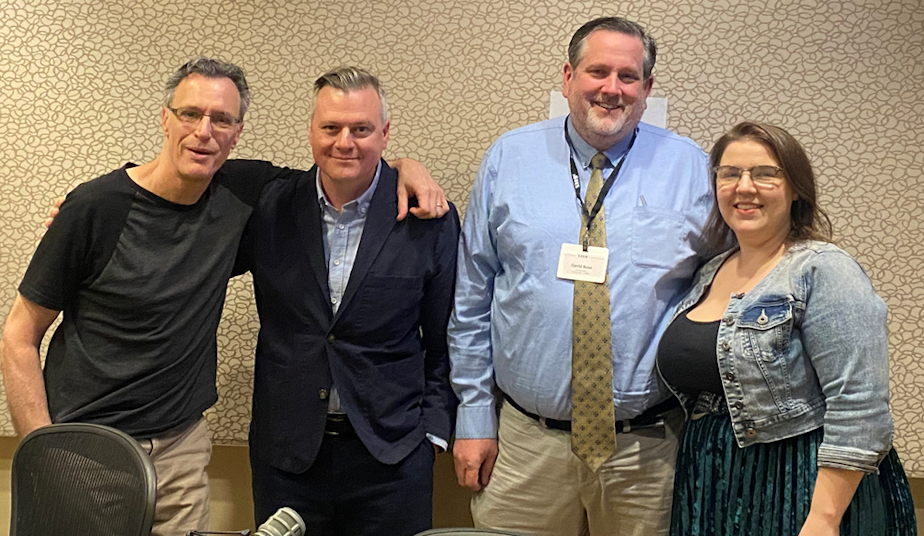Week in Review: Boeing, Seattle City Council, and grizzlies

Bill Radke discusses the week’s news with Live Wire’s Luke Burbank, The Needling’s Lex Vaughn, and Washington Policy Center’s David Boze.
A major cleanup effort is underway in Baltimore after the collapse of the Francis Scott Key Bridge earlier this week. Replacing the bridge could take anywhere from 18 months to two years. The collapse has many in the Pacific Northwest thinking about local bridges that have met their fate, and the condition of our current bridges. A spokesperson for the Washington State Department of Transportation told the News Tribune: “The two bridges of largest concern on the river are the Astoria bridge and the Longview bridge. All ships coming into the river pass under those two bridges.” Are we concerned enough about our Northwest bridges?
Boeing CEO David Calhoun announced his retirement this week. Calhoun told employees that the Alaska Airlines' door panel blowout in January was a "watershed moment" for the company. The head of Boeing Commercial and the chairman of the board are also leaving. Stock prices rose after the announcement was made. What other reactions to the news are we seeing?
Seattle's new City Council is considering reducing the minimum wage for food-delivery drivers that the last City Council put in place. Delivery drivers don't have an hourly wage; they're independent contractors. The former City Council guaranteed them a minimum amount per mile, per minute and per order. The app companies, like Uber Eats and Door Dash, added a $5 per order service charge, supposedly to cover the costs "imposed" by Seattle. That makes your food order more expensive, so orders dropped, tips went down, and some drivers say now they're making less money than they were before. This week, a City Council committee "considered" repealing the wage guarantees and requiring the companies to check every week to make sure the drivers are making the equivalent of minimum wage. Do the app companies bear any additional responsibility here?
On Monday, Gov. Jay Inslee posted a comment on social media about grizzly bears in Washington state, saying the reintroduction will restore balance to Washington state’s natural heritage. The idea would be to release three to seven grizzlies per year over five to 10 years, with a goal to establish an initial population of 25. Not all tribal members agree, including some in leadership positions. There was also opposition from some ranchers and hikers. Do the benefits outweigh the risks?





